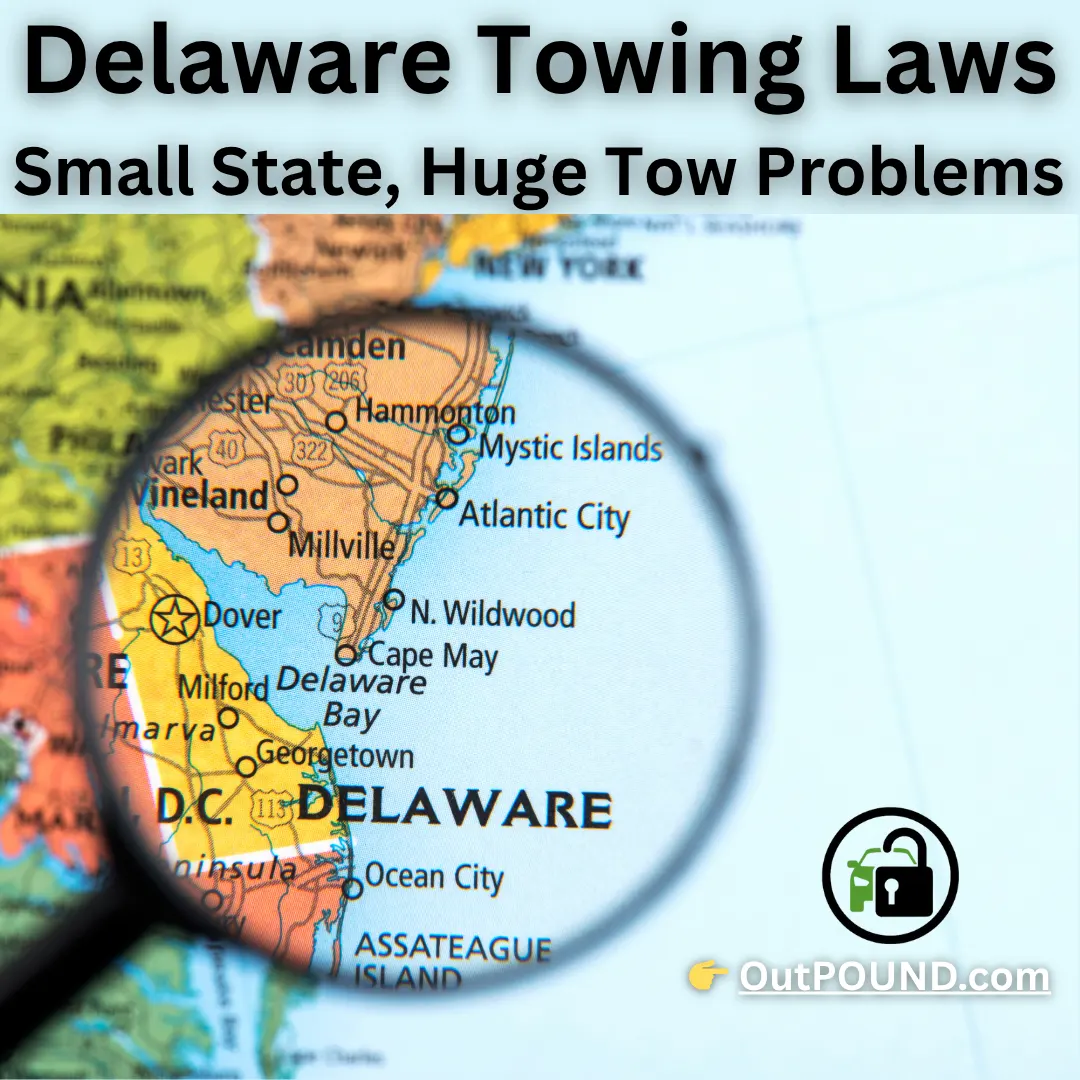Small State, Huge Tow Problems

Delaware. Often overlooked, sometimes forgotten, but impossible to ignore once your car disappears in Wilmington or Dover. In this tiny state, towing companies have perfected the art of turning your vehicle into a short-term hostage while your bank account slowly weeps. What makes Delaware special? Its combination of lax oversight, high fees, and plenty of wiggle room for tow companies to do whatever they want.
Who Can Tow?
Any licensed operator with property owner authorization or a police order can tow your car. That means if you accidentally park in the “wrong” private lot or leave your car near a strip mall, you’re basically a walking invitation for impound chaos. In Delaware, even a few inches over a line or a car that looks “out of place” can make you a candidate for a tow.
When Can They Tow?
Delaware law allows towing if your car is parked illegally on private property, blocking access, or deemed “abandoned.” The definition of abandoned is vague, leaving plenty of room for interpretation. Some lots interpret it as “any car left unattended for more than a couple of hours,” which means a quick lunch break could cost you hundreds. Police authorized towing is another factor, if officers deem your car an obstacle, your vehicle is gone, no questions asked.
Notification Requirements:
In theory, towers must notify law enforcement about the towed vehicle, and the vehicle owner should also be informed. In practice, most Delaware drivers find their cars gone before any friendly call or notice arrives. Tracking down your own car often involves hours on the phone, online sleuthing, or visiting multiple impound lots while muttering profanity at your empty parking spot.
Fees:
Hook-up fees in Delaware typically range from $100 to $150, with daily storage fees between $25 and $50. Add in administrative fees, after-hours retrieval fees, and miscellaneous “we felt like it” charges, and suddenly your car’s short stay in the impound yard costs more than a weekend getaway to Rehoboth Beach. Delaware’s law doesn’t strictly cap these fees, so tow companies enjoy wide latitude to pile them on.
Vehicle Release:
To get your car back, you need proof of ownership and full payment of all fees. Some lots demand cash only, others accept credit cards, and many enjoy making you jump through hoops just to see your keys again. Miss one tiny requirement, and your car enjoys an extended stay, accruing more fees by the hour.
Legal Recourse:
Delaware technically allows you to contest an illegal tow or excessive fees. However, the process is slow, bureaucratic, and frustrating. Hearings, paperwork, and delays are par for the course, and by the time a case is resolved, your car may have been auctioned or moved to an inconvenient location. Tow companies know that most people will pay up rather than battle the system.
The Tow Trap Reality Check:
Delaware may be small, but the tow game is big. The combination of vague rules, inconsistent enforcement, and high fees makes it easy for companies to treat your car like a cash cow. Your best defense? Don’t panic! Head straight to OUTPOUND.com. We help you locate your vehicle, navigate the fees, and get your car back without losing your mind or your paycheck. In Delaware, the only thing smaller than the state is your patience while dealing with a tow yard.

